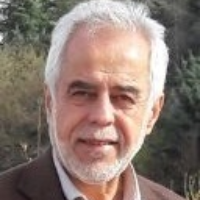Genealogy of the Pilgrimage and Tourism Role of Mashhad
City is one of the elements of geographic space that has been evolved over time and influenced by various natural and human factors. Urban space is part of a larger geographic space. In religious cities, urban development is largely intrinsic, and this determines its role. Mashhad is a religious city and the reason for its existence is the tomb of Imam Reza. Over time, this identity has made the function and role of the city. Spatial diversity of Mashhad is also shaped based on its identity and function. The dominance of Islamic ideology and the need to preserve and promote the position of this ideological thinking by planners, decision-makers, and urban rulers have been proposed for the development of Mashhad. The status of Mashhad as one of the main metropolises of the Iranian urban system has led to the formation and development of this city and its evolution. Identifying the forces that influence the change of geographic space and their social content is essential to discovering and analyzing the discourses that constitute these changes.The present research aimed at identifying the evolution of the role of pilgrimage and tourism in Mashhad, the points of discontinuity and the discourses that have made these developments over time, with a genealogical approach. Therefore, the main purpose of the research is to analyze the role of pilgrimage-tourism of Mashhad and its more detailed
Identification of historical breakpoints affecting the creation and strengthening of tourism-pilgrimage role in Mashhad Identification of the discourses that make the pilgrimage-tourism role of Mashhad, and finally, the effects of dominant discourse on the urban space of Mashhad.
The theoretical framework of the research is based on the explanation of the concept of genealogy, its discourse and its components, the concept of the role of the city and the concept of the role of tourism and pilgrimage of the city. Analytical genealogy is a historical reflection of the past. It discourages the illusions of ideologies, practices, and all types of cultural, social and political institutions. The great rationalization of genealogy analysis is a critical historical presentation that reveals the breakdown between past and present. This historical break with the occurrence of the present (as an event) creates a field for critique. The transformation and presentation of cities from one state to another and the change in the role and function of it within the discourses can be analyzed and studied according to Foucault's theory. In the meaning of discourse there are two important concepts: "exclusion" and "judgment".The turning point of Foucault's debates on power and knowledge relations lies in the concept of "exclusion". Ruling processes, the result of the dominance of dominant discourse, are shaped and defined by the power relations. A multitude of judgments form a discursive formulation. Discourse arrangements and discourse relationships in a community are Episteme. It seems that in order to determine the role of the city, in addition to economic indicators, political, social and ideological factors and their power in the social environment should be considered. Genealogy does not consider discourse change from one period to another based solely on self-discourse logic. This approach emphasizes the role of metadiscourse. In this transformation, "power" is considered as the main theme of the metadiscourse that affects their discourses and their transformations of this city.
"Genealogy" is a theoretical approach or framework for studying a phenomenon. The unique feature of this theoretical framework is the historical view of the phenomenon. There is no validity and reliability in the "genealogy" method, as in quantitative and survey research. The study method was developed in three consecutive stages. Identifying the important historical breakthrough points on creating and strengthening the role of tourism-pilgrimage in Mashhad; Identifying the authoritative discourses on the role of tourism-pilgrimage in Mashhad; Analyzing of the effects of dominant discourses on the urban space of Mashhad.The required data of the research was gathered by documentary method. To analyze the discourses and its effects on the changes in the role of tourism-pilgrimage in Mashhad, the documents of urban development and tourism were used.
The genealogy of the role of tourism-pilgrimage of Mashhad is based on the identification of historical discontinuities, discourses and the analysis of the effects of discourses in different historical periods. The impacts of the pilgrimage-tourism discourse on the city and the strengthening of this role are evident in planning and managing tourism and pilgrimage infrastructure in Mashhad. It also affects the type of tourists entering Mashhad. These effects are visible in the economic, social, cultural, and physical dimensions. The role and function of tourism in cities, in addition to its effects on the structure and texture of the city, will also provide the infrastructure needed for this role in land use planning and land allocation and financial resources. The domination of pilgrimage-tourism discourse has been shown on the role of Mashhad in reviewing the organizational and executive structure of tourism and pilgrimage, and the orientations of regional and local development plans and documents.
The genealogical analysis of the role of Mashhad shows that pilgrimage has been the starting point for the emergence and development of Mashhad. So far, it has continued, but political-social developments and the advent of modern-day and postmodernist capitalist-based thinking have pushed the city into a tourist’s physical, social, and economic environment. The interconnected structures of knowledge and power, in an active and informed partnership, have led urban development to combine the role of pilgrimage with tourism. Since genealogy has a critical approach to the issues, the research methodology can respond to the theoretical conflicts of planners and actors in the field of pilgrimage and tourism management in Iran and Mashhad.
- حق عضویت دریافتی صرف حمایت از نشریات عضو و نگهداری، تکمیل و توسعه مگیران میشود.
- پرداخت حق اشتراک و دانلود مقالات اجازه بازنشر آن در سایر رسانههای چاپی و دیجیتال را به کاربر نمیدهد.


